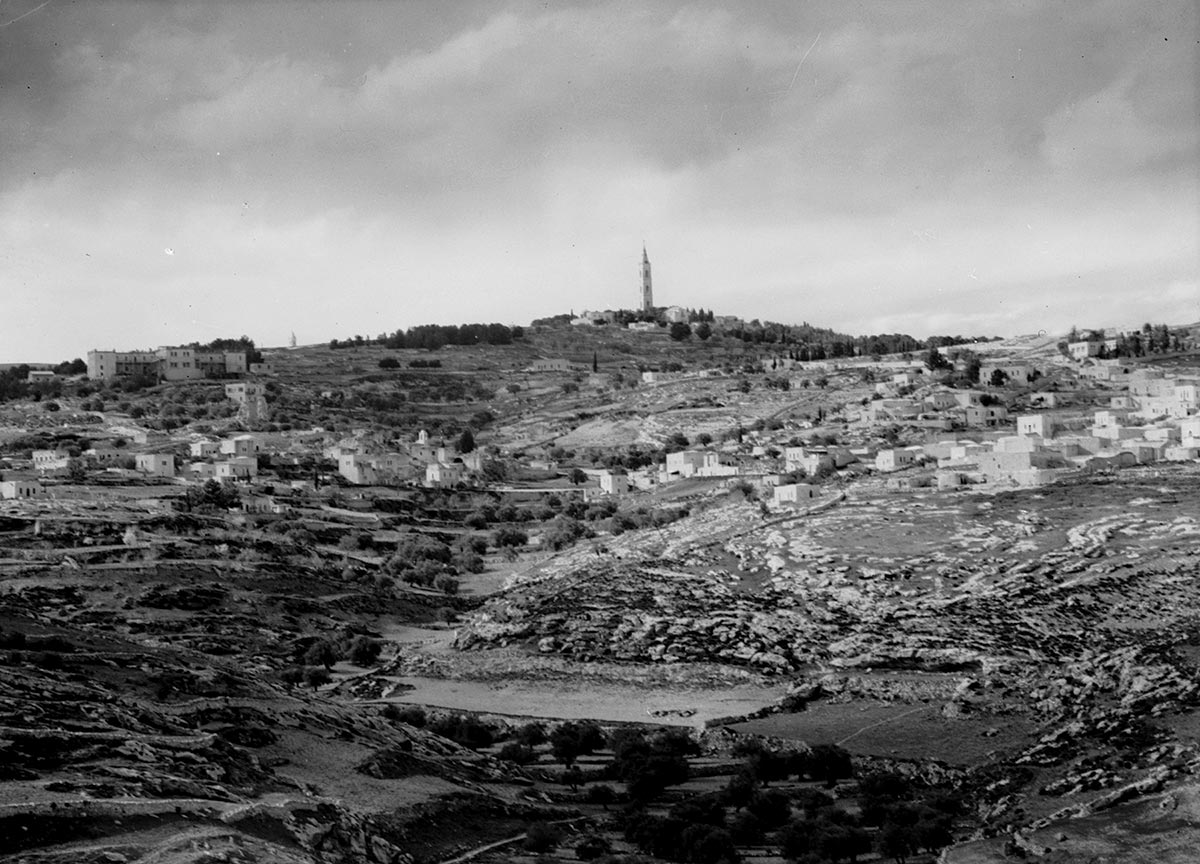Dying to Live
The Bible’s Answer to Mortality
Death. We don’t really like to think about this subject. It reminds us too readily of the fragility of our own lives. But why must it be like this?
- Explore the answer to this question as given by God in the Bible.
- Find out about the origin and cause of death.
- Discover the hope God offers those who are willing to hear Him.
“Blessed be the God and Father of our Lord Jesus Christ, who according to His abundant mercy has begotten us again to a living hope through the resurrection of Jesus Christ from the dead.” ~ 1 Peter 1:3
 Death. No one likes to think about it. No matter what you believe about death, the loss, the pain, the grief when you lose someone close to you is immeasurable. The empty void is never really filled, though time softens the blow. Memories, pleasant and rich, do come in time to ease the grief and pain.
Death. No one likes to think about it. No matter what you believe about death, the loss, the pain, the grief when you lose someone close to you is immeasurable. The empty void is never really filled, though time softens the blow. Memories, pleasant and rich, do come in time to ease the grief and pain.
Death is a reminder of the fragility of life. We know the time is approaching when our own body will start to fail in various ways. The increase in ailments is matched only by the number of pills we must swallow.
We call this “mortality.” We can discuss this as an abstraction, a great theological question, but the hard reality is that death with all its pain, grief and sorrow is ever present in our lives and in the world around us.
But why? Why must it be like this?
Some accept dying as just part of the great cosmic accident called “life,” a necessary element in an evolutionary process for making fitter organisms to fill the niches in our world.
Does this really make death any easier? Since it makes us so insignificant in the larger scheme of existence, it may increase our sense of anguish in the face of death, rather than reduce it.
Others find comfort in believing they will continue to exist after death; that death is really a transition to another place, wherever and whatever that may be, or simply the recycling of life’s essence into another living creature.
Both of these viewpoints have been around for a very long time. We cling to one or another of these to make some sense of death, to provide some answer to the hard reality of this unpleasant visitor to our lives.
How can you know that what you believe is really true?
This article takes the view that the only source to find a reliable answer to our questions about death and mortality is the God who created us, and His written word and testimony, the Bible.
This article does not attempt to defend the veracity of the Bible; this is left to another article in this series.11 Is there really a Living God? The goal here will be to see what the Bible says and to consider carefully its message—which offers an understanding of death that both makes sense and gives real hope and comfort in the face of mortality.
The best part of all this is that God’s answer to our question is not based on wishful, persuasive words, but on an unassailable fact of history!
The Beginning of Human Life
It makes sense to start our exploration at the very beginning, to go back to God’s very first testimony about human existence in Genesis:
And the LORD God formed man of the dust of the ground, and breathed into his nostrils the breath of life; and man became a living being. (Genesis 2:7)
These words are simple and direct: God used the dust of the ground to make the first man.2The original language of the text (Hebrew) is even more emphatic: there is no ‘of ’ in the text indicating that man is made only of dust (from the ground) and nothing more. We can draw the following observations from this verse:
| #1 | Man’s origin is from the dust, not from the sea or somewhere else. |
| #2 | God’s breath of life filling the nostrils and lungs of this man is what made this amazingly re-formed dust alive. |
| #3 | The result was a “living being” as opposed to his former state—a lifeless, dead being. |
That was it. Put into a visual form we would have:
The End of Human Life
This simple statement by God makes the next statement about human destiny much clearer. In Genesis 3, after the first man and woman decided to disobey God by eating the forbidden fruit, God passes judgment on them:
In the sweat of your face you shall eat bread till you return to the ground, for out of it you were taken; for dust you are, and to dust you shall return. (vv. 17,19)
Note how God is again very clear about our human origin, “dust you are,” and now our end, “to dust you shall return.”
This declaration by God is matched by another scripture in the book of Job (an early Old Testament book):
If He [God] should set His heart on it, if He should gather to Himself His Spirit and His breath, all flesh would perish together, and man would return to dust. (Job 34:14-15)
To put this into a more visual form again, we have:
The truth of this description is vividly reinforced by a statement made by God to his angelic helpers after the first man and woman disobeyed:
Then the LORD God said, “Behold, the man has become like one of Us, to know good and evil. And now, lest he put out his hand and take also of the tree of life, and eat, and live forever” — therefore the LORD God sent him out of the garden of Eden to till the ground from which he was taken. So He drove out the man; and He placed cherubim at the east of the garden of Eden, and a flaming sword which turned every way, to guard the way to the tree of life. (Genesis 3:22-24)
God ensured that the first man and woman (as well as any of their offspring) would never forget that living forever was now completely removed from their grasp. They were to be expelled from the garden and denied access to the tree of life. They were going to return to the dust whether they wanted to or not. Let those words sink in, because they lead to a very disconcerting conclusion…
Death Is Real and Permanent
In other words, death really is the opposite of life, and it is permanent, apart from any intervention by God. It is a message echoed again and again throughout the Old Testament as the following passages demonstrate.
BIBLE REFERENCES
And Adam lived one hundred and thirty years, and begot a son in his own likeness, after his image, and named him Seth. After he begot Seth, the days of Adam were eight hundred years; and he had sons and daughters. So all the days that Adam lived were nine hundred and thirty years; and he died. (Genesis 5:3-5)
And all flesh died that moved on the earth: birds and cattle and beasts and every creeping thing that creeps on the earth, and every man. All in whose nostrils was the breath of the spirit of life, all that was on the dry land, died. (Genesis 7:21-22)
For in death there is no remembrance of You; In the grave who will give You thanks? (Psalm 6:5)
For He remembered that they were but flesh, a breath that passes away and does not come again. (Psalm 78:39)
For He knows our frame; He remembers that we are dust. As for man, his days are like grass; as a flower of the field, so he flourishes. For the wind passes over it, and it is gone, and its place remembers it no more. (Psalm 103:14-16)
Put not your trust in princes, in a son of man, in whom there is no salvation. When his breath departs, he returns to the earth; on that very day his plans perish. (Psalm 146:3-4 ESV)
For what happens to the sons of men also happens to animals; one thing befalls them: as one dies, so dies the other. Surely, they all have one breath; man has no advantage over animals, for all is vanity. All go to one place: all are from the dust, and all return to dust. (Ecclesiastes 3:19-20)
For the living know that they will die; but the dead know nothing, and they have no more reward, for the memory of them is forgotten. Also their love, their hatred, and their envy have now perished; nevermore will they have a share in anything done under the sun. (Ecclesiastes 9:5-6)
The cold reality of death is perhaps the hardest lesson God has to teach us. Our implicit desire is to deny these things, to believe life must continue in some form. Numerous philosophies beckon us in this direction, that is, that we won’t really die. It is exactly what the serpent said to the woman: “You will not surely die!” (Genesis 3:4)
God Intervenes
God created us. He then brought death into our experience. But God’s intention was not to fill this world with dead people; rather, with the living!
For thus says the LORD, Who created the heavens, Who is God, Who formed the earth and made it, Who has established it, Who did not create it in vain, Who formed it to be inhabited: “I am the LORD, and there is no other.” (Isaiah 45:18)
It makes logical sense, therefore, that God would provide some kind of deliverance from the awful finality of death. This is actually hinted at in Genesis 3.
Two things tell us that from the very beginning God intended to intervene in humanity’s desperate circumstances:
| #1 | Although God said the man and woman would die the day they ate the fruit (Genesis 2:17), they didn’t. God’s mercy brought an extension of life. Adam understood the extent of this mercy when he named his wife “Eve,” which means “the mother of all living.” Eve was going to live long enough to give birth to a family (3:20). |
| #2 | God set a guard by the entrance to the garden not to bar forever the way to the tree of life, but to “guard,” that is, to protect and preserve this way (3:24). The proof of this idea is found in the last book of the Bible where Jesus promises: “To him who overcomes, I will give to eat from the tree of life, which is in the midst of the Paradise [lit. garden] of God.” (Revelation 2:7) |
Jesus is Proof of Life
God can provide deliverance from the awful finality of death. He seems to hint at it early in the Bible, but will He really do this? What becomes an amazing discovery is that Jesus turns out to be the proof God can and will overcome the finality of death! Jesus became the very first human whom God actually delivered forever from the cold hand of death. Consider these Bible statements about Jesus:
Christ, having been raised from the dead, dies no more. Death no longer has dominion over Him. (Romans 6:9)
And He is the head of the body, the church, who is the beginning, the firstborn from the dead, that in all things He may have the preeminence. (Colossians 1:18)
Jesus Christ, the faithful witness, the firstborn from the dead… I am He who lives, and was dead, and behold, I am alive forevermore. Amen. And I have the keys of Hades and of Death. (Revelation 1:5, 18)
The resurrection of Jesus was the foundation of the disciples’ belief in the resurrection
These are powerful and dramatic statements telling us plainly that Jesus is no longer subject to the power of mortality and death.
“Firstborn from the dead” is also a very powerful statement. The word “resurrection” is used in the Bible to describe bringing someone who is dead back to life again. Jesus had done this at least three times, once for a young man being carried out to be buried, once for a young girl who died from illness, and once for a very dear and close friend (Lazarus) who had been dead for four days. Also, in the Old Testament there are several recorded resurrections.
Clearly, Jesus could not be the first born from the dead, unless these words describe something more than just coming back to life to die again at a later time.
The passages cited earlier from Romans and Revelations are quite clear: Jesus was once alive, then he indisputably died, but now, he is alive again—forever. What the first man lost through turning away from God (life), this man was now given, permanently. As the passage in Romans tells us, death no longer has any claim over Jesus.
Perhaps we can now appreciate how important Jesus’ resurrection was to his disciples “to whom he also presented himself alive after his suffering by many infallible proofs” (Acts 1:3). The resurrection of Jesus was the foundation of their own belief in the resurrection:
But when Paul perceived that one part were Sadducees and the other Pharisees, he cried out in the council, “Men and brethren, I am a Pharisee, the son of a Pharisee; concerning the hope and resurrection of the dead I am being judged!” (Acts 23:6)
I [Paul] have hope in God, which they themselves also accept, that there will be a resurrection of the dead, both of the just and the unjust. (Acts 24:15)
Blessed be the God and Father of our Lord Jesus Christ, who according to His abundant mercy has begotten us again to a living hope through the resurrection of Jesus Christ from the dead. (1 Peter 1:3)
What becomes an amazing discovery is that Jesus turns out to be the proof God can and will overcome the
finality of death!
Jesus’ Teaching

©: United States Library of Congress Prints and Photographs division – digital ID matpc.12774
Three times Jesus brought someone dead back to life. The last of these is worth looking at more closely. The account is found in John 11. Jesus and his disciples had travelled down into the Jordan valley and across theJordan River (John 10:40). The animosity against Jesus in the Jerusalem area had grown quite intense, hence the reason for this retreat (11:8-10).
While here, Jesus received an urgent message to come back up to Bethany, a town close to Jerusalem: Lazarus, a very close and dear friend, was very sick and close to death (11:3-6).
Amazingly, Jesus stayed two more days. In those two days (the actual travel time to get back to Bethany), his friend died. Jesus then told his disciples something both perplexing and utterly remarkable:
These things he said, and after that he said to them, “Our friend Lazarus sleeps, but I go that I may wake him up.” Then his disciples said, “Lord, if he sleeps he will get well.” However, Jesus spoke of his death, but they thought that he was speaking about taking rest in sleep. Then Jesus said to them plainly, “Lazarus is dead.” (11:11-14)
Notice how Jesus described Lazarus’ death. He said, “our friend Lazarus sleeps.” When one sleeps at night, the expectation is that one will awake in the morning. But here, Jesus describes death to be like a sleep. What did he mean by this?
When Jesus arrived in Bethany, one of the sisters of Lazarus came running to him and cried out “Lord, if you had been here, my brother would not have died!” The interchange between Jesus and Martha is very instructive (11:23-27):
Jesus: “Your brother will rise again.”
Martha: “I know that he will rise again in the resurrection at the last day.”
We clearly see both Jesus’ and Martha’s understanding of what hope lay beyond death: the resurrection of the dead at the last day.
What Jesus said next is truly remarkable…and perplexing.
Jesus: “I am the resurrection and the life. He who believes in Me, though he may die, he shall live. And whoever lives and believes in Me shall never die. Do you believe this?”
Martha: “Yes, Lord, I believe that You are the Christ, the Son of God, who is to come into the world.”
Resurrection is the foundation for true hope. Why? Because Jesus’ own triumph over mortality is God’s proof that those who receive this hope can share in the same victory. Jesus is declaring that God had given him the power to raise from the dead those who believe in him! This now makes clear why Peter proclaimed with such certainty that the disciples of Jesus have a “living hope through the resurrection of Jesus Christ from the dead.” (1 Peter 1:3)
Resurrection is the foundation for true hope. Why? Because Jesus’ own triumph over mortality is God’s proof that those who receive this hope can share in the same victory.
This insight now explains an otherwise mysterious statement we saw earlier in Revelation 1:18 where Jesus asserted: “I have the keys of Hades and of Death.”
In the ancient world, it was the ruler who held the keys of a city. He decided who could stay and who could not. What does it mean that Jesus now has the keys to Hades (the Greek word for the grave) and the keys to Death?
It means Jesus has the power to decide who will stay in the grave and who will not. It also means he has the power to decide who will be given life permanently and who will not.
The Sleep of Death
But what did Jesus mean when he said that whoever believes in him “shall never die”?
To answer this question we need to see how what we have just learned reflects a truth found in other parts of the Bible.
When Jesus was confronted once by the Sadducees, a Jewish sect who didn’t believe in the resurrection, Jesus’ response is very instructive. Think about what Jesus said:
Jesus answered and said to them, “The sons of this age marry and are given in marriage. But those who are counted worthy to attain that age, and the resurrection from the dead, neither marry nor are given in marriage; nor can they die anymore, for they are equal to the angels and are sons of God, being sons of the resurrection. But even Moses showed in the burning bush passage that the dead are raised, when he called the Lord ‘the God of Abraham, the God of Isaac, and the God of Jacob.’ For He is not the God of the dead but of the living, for all live to Him.” (Luke 20:34-38)
Jesus’ description of what the resurrection will be like is instructive in its own right, but how Jesus proved the resurrection to these men who only accepted as divine the first five books of Moses (Genesis-Deuteronomy) is extraordinary.
Follow the logic: When God appeared to Moses in a burning bush that was not consumed, God declared that He is the God of the forefathers of Moses (Abraham, Isaac, and Jacob—see the actual quote in Exodus 3:6).
Do you see what is odd about this statement? Abraham, Isaac, and Jacob were all dead and buried. The writer of Hebrews says, “These all died in faith, not having received the promises” (11:13). Therefore, God should have said He was the God of these men.
How do we make sense of all this? By following the lead of Jesus: God does not see these men to be permanently dead! Rather, He sees them to only be resting in the grave for a time until He decides to wake them from their “sleep.” Just like Lazarus. God is a God of living people and not even death itself can change their status in His sight.
They will live again:
And many of those who sleep in the dust of the earth shall awake, some to everlasting life, some to shame and everlasting contempt. Those who are wise shall shine like the brightness of the firmament, and those who turn many to righteousness like the stars forever and ever. (Daniel 12:2-3)
Jesus affirmed this truth in his own teaching:
For as the Father has life in Himself, so He has granted the Son to have life in Himself, and has given Him authority to execute judgment also, because He is the Son of Man. Do not marvel at this; for the hour is coming in which all who are in the graves will hear His voice and come forth—those who have done good, to the resurrection of life, and those who have done evil, to the resurrection of condemnation. (John 5:26-29)
Jesus used a special word when he described where he will find those who will be resurrected by him: “graves.” The word literally means a “remembered place,” and is often translated as “tomb” (e.g., Matthew 23:29).
How fitting this term is: Those who are to be remembered, like Abraham,Isaac, and Jacob, will be the ones Jesus will raise from the dead. Now we can understand what Jesus meant when he said his followers would “never die.” The language of death is no longer applicable to someone who is viewed only as “sleeping” until they are awakened from the grave!
Hope For Those In Christ
There is one final passage in the Bible that was written specifically to help us understand the importance of this great hope of resurrection and eternal life. It appears in a letter written by the Apostle Paul to the early disciples in a Greek city called Corinth.
After affirming that Jesus was seen after his resurrection by the apostles of Jesus and over five hundred followers, Paul begins to deal with a serious problem:There were some in Corinth who strongly asserted there was no resurrection from the dead. Follow Paul’s reasoning as he begins to address this issue:
But if there is no resurrection of the dead, then Christ is not risen. And if Christ is not risen, then our preaching is empty and your faith is also empty. Yes, and we are found false witnesses of God, because we have testified of God that He raised up Christ, whom He did not raise up–if in fact the dead do not rise. For if the dead do not rise, then Christ is not risen. And if Christ is not risen, your faith is futile; you are still in your sins! Then also those who have fallen asleep in Christ have perished. (1 Corinthians 15:13-18)
Notice how critical Jesus’ resurrection is to their own hope of resurrection from the dead. If Jesus did not rise, then they were believing in an empty and futile promise. Worse, those who had already died (“fallen asleep”) had “perished”— that is, they had returned to the dust permanently.
Paul continues his argument based on the truth of those who actually witnessed and touched the resurrected Jesus:
But now Christ is risen from the dead, and has become the firstfruits of those who have fallen asleep. For since by man came death, by man also came the resurrection of the dead. For as in Adam all die, even so in Christ all shall be made alive. But each one in his own order: Christ the firstfruits, afterward those who are Christ’s at His coming. (1 Corinthians 15:20-23)
Here is Paul’s concluding point:
Then comes the end, when He delivers the kingdom to God the Father, when He puts an end to all rule and all authority and power. For He must reign till He has put all enemies under His feet. The last enemy that will be destroyed is death. (1 Corinthians 15:24-26)
As God intended from the beginning, death will finally be eliminated from His creation when Jesus finishes his rulership over this world.
No wonder Paul rejoices in this wonderful hope God has brought to all that will turn to God:
When this corruptible has put on incorruption, and this mortal has put on immortality, then shall be brought to pass the saying that is written: “Death is swallowed up in victory.” “O Death, where is your sting? O Hades (grave), where is your victory?” …thanks be to God, who gives us the victory through our Lord Jesus Christ. (1 Corinthians 15:54-57)
Appeal to the Reader
This article began with our plight as humans: We are dying, really dying. It doesn’t matter how disciplined we are with our diets and exercise, one day we will join all those before us in the dust of this earth.
The Hope of Resurrection and Life rests on the solid rock of Jesus’ own resurrection and unending life.
The Bible says that it doesn’t have to be like this. For those willing to turn to God in faith and trust, to believe His promises and obey Him in following His Son in the way He teaches, there is hope, real hope, of living again—permanently!
This is the vital message of the risen Christ: What God has done for His Son in raising him from the dead to eternal life, He can and will do for all who put their trust in Christ Jesus. The Hope of Resurrection and Life rests on the solid rock of Jesus’ own resurrection and unending life. This is true not only because Jesus is the proof of this hope, but God has also put into his hands the resurrection and life of all that belong to him.
Read through this article again. Weigh up what you read. No one has really disputed that two thousand years ago a tomb was found empty, the tomb that had held the body of Jesus. The question you must answer for yourself is this: How did that tomb become empty?
Perhaps, just perhaps, you will discover what the disciple Peter discovered and will be able to say with him:
Blessed be the God and Father of our Lord Jesus Christ, who according to His abundant mercy has begotten us again to a living hope through the resurrection of Jesus Christ from the dead.
1 Peter 1:3









